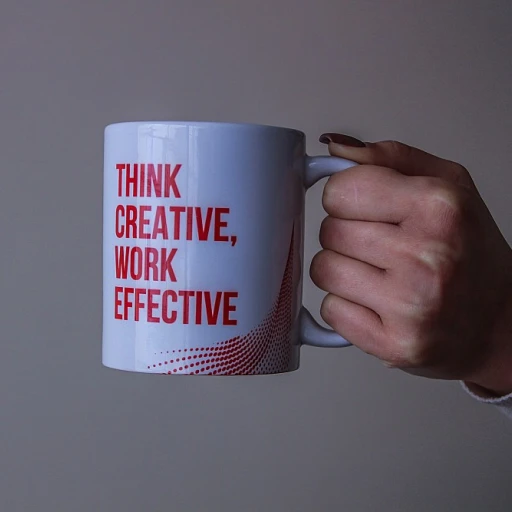Understanding Adaptability in HR Roles
Grasping the Concept of Adaptability in HR
Adapting is what keeps the HR wheels turning smoothly. It's an ability required for teams and employees to function well in an ever-changing work environment. It's not just about having problem-solving skills or being able to work well with others; it's about a candidate's adaptability and willingness to embrace change, making timely decisions, and providing solutions on the fly. Think of adaptability as a soft skill that's essential for thriving in any HR role. It helps employees to not only survive but to thrive when faced with unexpected problems. When interviewing for HR positions, employers love candidates who exhibit these traits. Who doesn’t? Change isn't always easy, but those who navigate the choppy waters with grace are the ones to watch and possibly hire. Employers recognize that while technical skills can be taught, the ability to adapt often comes from within. It's a unique talent that sets exceptional candidates apart from the rest. So, when you're in an interview scenario, highlighting past experiences where you've demonstrated adaptability will undoubtedly get you a step closer to landing the role. For candidates navigating the hiring process, understanding how adaptability interacts with cultural compatibility can be vital. Discover more about evaluating cultural compatibility in job interviews to see how these two aspects align. Sources cite that adaptability isn't merely about conforming to change but thriving through it and inspiring others to do the same (Forbes, 2023). So, next time you're in an interview, remember that showcasing your adaptability skills could be your ticket to success.Key Indicators of Adaptability
Signs Someone Can Adapt
Recognizing how a person can adapt to change is essential in HR roles. When evaluating a candidate's adaptability skills, there are a few markers you can keep an eye out for. Being nimble when things get unpredictable and having the ability to think on their feet is a good sign of strong problem solving skills.- Proactive Problem Solving: Candidates who offer creative solutions and can anticipate challenges before they become problems are displaying adaptability.
- Flexibility in Thought and Action: Someone who is not stuck in their ways and is open to feedback, constantly seeking to improve and learn, is adaptable.
- Comfort with Ambiguity: An employee who thrives in uncertain conditions without the need for hand-holding will do wonders in an HR role that faces constant change.
Taking a Deep Dive into Interview Questions
Having the right questions during an interview can highlight a candidate's ability to respond under pressure and adapt to different scenarios. You want questions that encourage them to share personal experiences.- "Can you describe a time when you were faced with an unexpected challenge at work and how you handled it?"
- "Tell us about a time when you had to learn something new quickly for a project."
- "How do you approach a situation where team members disagree on how to proceed on a task?"
Assessments Beyond the Interview
To get a well-rounded view of a candidate's adaptability, you might consider practical assessments or adaptability tests that simulate real HR work environment scenarios. Task them with something like a mock project where they have to switch priorities based on changing data or client needs. It puts their adaptability and decision making ability to the test in a hands-on way. Practical assessments can provide insights into how candidates handle tasks in real time, allowing you to accurately gauge if they would manage the pressure of a dynamic workplace. For additional insights on finding candidates that fit well with your company culture, visit this blog post. It delves into more strategies for assessing the broader fit of a prospective employee during the hiring process.Crafting Interview Questions
Building Effective Questions
When you're on the hunt for a candidate who can roll with the punches, crafting the right interview questions is key. The aim is to dig into their adaptability skills without making it feel like an interrogation. Start with questions that encourage the candidate to share personal stories about how they've handled change in the past. These questions not only reveal their ability to adapt but also give you insight into their problem-solving skills and decision-making process.
Examples of Adaptability Questions
- Describe a time when you had to adjust to a significant change at work. How did you handle it?
- Can you give an example of a project where you had to adapt quickly to meet a deadline?
- How do you prioritize tasks when everything seems urgent?
- Have you ever been in a situation where you had to learn something new in a short amount of time? What was your approach?
Assessing Candidate Responses
As you listen to their answers, pay attention to not just what they say, but how they say it. Are they confident in their responses? Do they mention teamwork and collaboration with other employees? Look for evidence of adaptability skills, such as their ability to embrace change, work well under pressure, and adjust their strategies when needed.
Using Data and Assessments
Incorporating practical assessments or situational tests can also be a great way to evaluate a candidate's adaptability. These assessments simulate real work environment scenarios, allowing you to see firsthand how a candidate might react to change or unexpected challenges. This approach complements traditional interview questions, providing a more rounded view of a candidate's abilities.
For more insights on how to assess communication skills during interviews, which are crucial for adaptability, check out our related article.
Role-Playing and Practical Assessments
Interactive Scenarios to Test Adaptability
Role-playing and practical assessments can be a game-changer in evaluating a candidate's adaptability. These methods offer a real-world glimpse into how a potential hire might react when faced with unexpected changes or challenges in the workplace. By setting up scenarios that mimic actual work situations, you can assess how well candidates can adjust their strategies and maintain composure under pressure.Creating Realistic Work Scenarios
Imagine a candidate is given a situation where a major project deadline has suddenly moved up by two weeks. How do they handle it? Do they panic, or do they quickly regroup and prioritize tasks? These practical tests not only reveal problem-solving skills but also show their ability to adapt to change. It's about watching them think on their feet and seeing if they can shift gears without losing momentum.Team-Based Challenges
Incorporating team exercises can also be insightful. By observing how a candidate interacts with team members, you can gather data on their communication and collaboration skills. Are they open to feedback? Can they lead a team through a sudden shift in strategy? These assessments are vital in understanding how adaptable a candidate will be in a team environment.Time-Pressured Tasks
Time-sensitive tasks can be another effective tool. Set a challenge that requires quick decision-making and see how candidates handle the pressure. This can highlight their ability to adapt and make sound decisions when time is of the essence. It’s not just about finding the right answer but showing resilience and a calm approach when the clock is ticking.Assessing Soft Skills
While technical skills are important, soft skills like adaptability and problem-solving are crucial in HR roles. These assessments help to evaluate a candidate's ability to embrace change and adapt to a constantly evolving work environment. Remember, adaptability is not just about reacting to change but also about anticipating it and preparing accordingly. By integrating role-playing and practical assessments into your hiring process, you not only evaluate candidates' adaptability skills but also their potential to thrive in your organization. These exercises provide a comprehensive view of how they might fit into your work culture and contribute positively to your team.Analyzing Responses and Body Language
Interpreting Candidate Reactions
In an HR interview, it's not just the words that matter. The way a candidate responds can say a lot about their adaptability. When faced with questions about past experiences or hypothetical scenarios, look for signs of confidence and composure. Candidates who are adaptable often exhibit a calm demeanor, even when discussing challenging situations. This ability to stay cool under pressure is a strong indicator of how they might handle change in a work environment.
Spotting Non-Verbal Cues
Body language can be a goldmine of information. Pay attention to how candidates use eye contact, gestures, and posture. Are they open and engaging, or do they seem closed off and defensive? An adaptable candidate will typically maintain good eye contact, use open gestures, and sit or stand with a relaxed posture. These non-verbal cues can provide insights into their confidence and willingness to embrace change.
Listening for Problem-Solving Skills
Adaptable employees are often great problem solvers. As candidates answer your questions, listen for examples of how they've tackled unexpected challenges. Do they describe a time when they had to think on their feet? Their stories should reveal their ability to adapt and find solutions quickly. This is an essential skill in any team, especially in HR roles where change is constant.
Evaluating Emotional Intelligence
Emotional intelligence is a cornerstone of adaptability. Observe how candidates talk about their interactions with team members and employees. Do they show empathy and understanding? Are they aware of the impact of their actions on others? High emotional intelligence often indicates a candidate's ability to adapt their communication style to suit different situations and people.
Considering Response Time
While it's important for candidates to provide thoughtful answers, pay attention to how long they take to respond. Quick, yet considered responses can indicate an adaptable mind that's used to thinking on its feet. However, if a candidate takes too long, it might suggest difficulty in adapting to new or unexpected situations.
By focusing on these aspects, you can effectively evaluate a candidate's adaptability, ensuring that you select individuals who will thrive in a constantly changing work environment.





